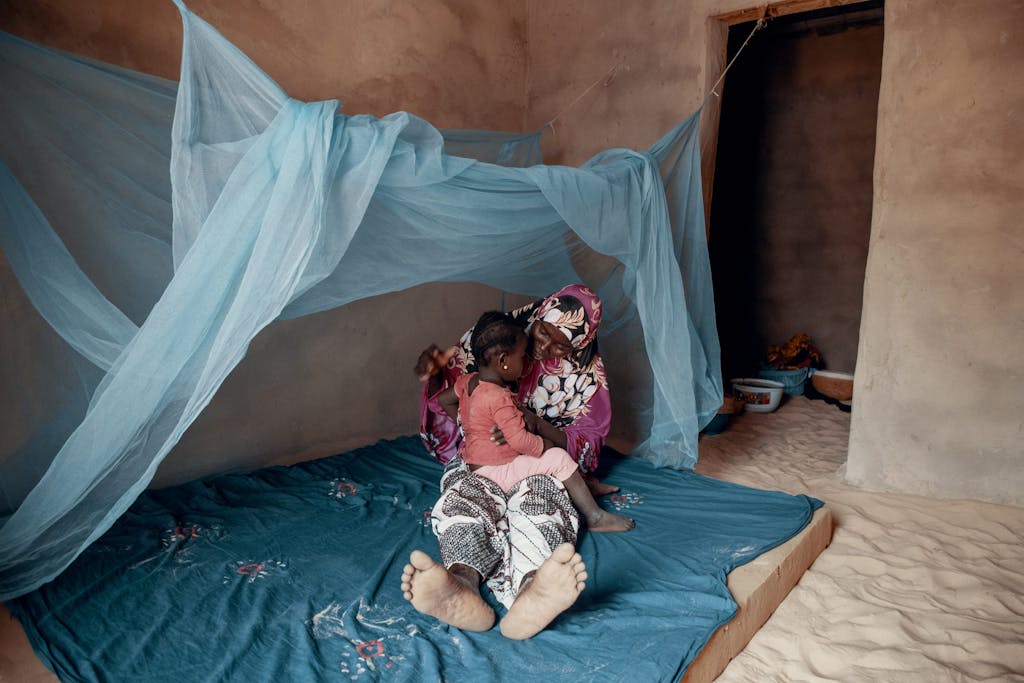The COVID-19 pandemic has reached nearly all countries, including those that struggle with high rates of malaria infections and deaths. The poorest countries with the weakest health systems will be especially hard hit and require a comprehensive approach that tackles COVID-19 while protecting the progress made against other deadly diseases.
Infectious diseases like malaria, tuberculosis, measles, and HIV don’t disappear when there is a pandemic. Mosquitoes that transmit malaria don’t follow social distancing guidelines. The rainy season still comes, and the number of mosquitoes still increases. Those unlucky enough to be infected, still risk death.

Those of us who have made it our life’s work to combat malaria know what happens with malarial infections when an epidemic strikes: People avoid health facilities because they’re either afraid of becoming infected or because the facilities themselves are overwhelmed. Diagnoses and treatments are interrupted and cases skyrocket. When the 2014 Ebola virus hit Guinea, Liberia and Sierra Leone, malaria deaths surged. After the epidemic, studies documented that malaria deaths far exceeded the numbers of those who died from the Ebola virus.
Recent modeling by the World Health Organization on the potential impact of COVID-19 on malaria, suggests we could be facing a similar situation in sub-Saharan Africa. In a worst-case scenario where all mosquito net campaigns are suspended and access to effective treatment is reduced by 75%, the model estimates that malaria deaths in sub-Saharan Africa could reach an estimated 769,000 by the end of this year. To put that in perspective, that’s twice the amount of malaria deaths in 2018.
There is a window of opportunity to prevent this scenario from becoming reality and the World Health Organization (WHO) is leading the way, encouraging access to malaria prevention, care, and treatment for people at risk during the COVID-19 pandemic.
“As COVID-19 continues its rapid spread, WHO would like to send a clear message to malaria-affected countries in Africa,” said Dr. Pedro Alonso, the Director of WHO’s Global Malaria Program. “Do not scale back your planned malaria prevention, diagnostic and treatment activities. If someone living in a place. with malaria develops a fever, he or she should seek diagnosis and care as soon as possible.”
WHO has provided detailed guidance for countries in two new documents, Tailoring Malaria Interventions in the COVID-19 Response and a Q&A. Both will be continually updated as information becomes available. WHO advises malaria programs to encourage people to seek care for fever and suspected malaria and to continue testing and treatment in health facilities and at the community level. Special attention should be paid to protecting the health and safety of health workers, staff, patients, and clients. To the extent possible, programs should deliver:
- Vector control such as mosquito nets and household spraying
- Preventive treatment for pregnant women and children in targeted communities
- Adapted health messages that incorporate physical distancing guidelines
Malaria programs will need to develop new approaches during the COVID-19 pandemic. Mosquito net distributions are being designed to avoid large gatherings of people for example, distributing door-to-door rather than at central distribution points. While such mitigation measures will likely be more expensive than traditional approaches, the cost of not trying new approaches could be catastrophic. WHO recommends that non-essential services for malaria, such as surveys and certain types of monitoring, be put on hold to help focus resources where they are needed most.
Addressing malaria and other health issues during the COVID-19 pandemic will save lives, reducing the number of people who need to seek treatment at health facilities, and lessening the burden on health systems. In the end, that approach benefits the entire community. By treating malaria promptly and adapting our approach to providing essential health services during this unprecedented time, we can reduce the toll of preventable deaths.
You can help by taking action through our Nothing But Nets campaign.
donate today
Every donation makes a difference. Support WHO’s life-saving efforts to respond to the COVID-19 pandemic by giving to the COVID-19 Solidarity Response Fund. Donations made via Facebook will be matched up to $10,000,000. Through June 30, 2020, for every $1 you donate here, Google.org will donate $2, up to $5,000,000.
Donate to the COVID-19 Solidarity Response Fund



 View All Blog Posts
View All Blog Posts




